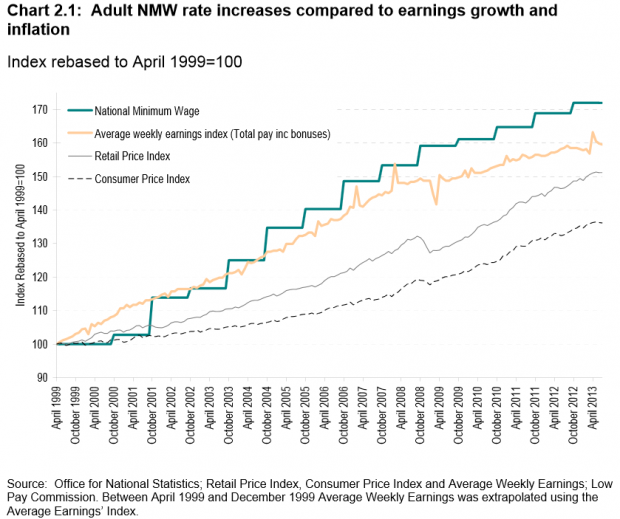Government urges low pay commission to consider youth unemployment in minimum wage decision

The government has urged the Low Pay Commission to consider the impact of the national minimum wage (NMW) on youth unemployment, in its interim evidence for the Low Pay Commission's 2014 report published earlier today.
The report cites the broader macro-economic climate, as reason to carefully examine NMW effects on employment:
Pre-recession trend growth is not expected until 2015. Government would therefore want the LPC in their 2014 report to consider concentrating their attention on the effect of the NMW on employment.
The government's evidence highlighted the fact that the NMW increased faster than median earnings between April 2011 and April 2012 and the adult minimum wage increased to its highest level ever. The NMW has also increased faster than median hourly earnings for young people. The increase in the apprentice rate was also higher than the adult minimum wage and the rise in average earnings over the same period.
Conditions for young people are a continuing cause for concern, with youth unemployment seven percentage points higher than before the recession with just under one million young people unemployed. The report reminds the LPC of the particular vulnerability of young people during times of economic stress.
As highlighted in the LPCs 2013 report, it is important to consider that the labour market performance of younger workers tends to be hit hard during and after economic recessions, and labour market outcomes tend to be more sensitive to economic cycles than adults.
The government confirmed that it would be changing its policy regarding compliance with the NMW. The government previously had seven criteria by which to judge an employer worthy of being named and shamed. Since the government only found one employer in 2011 who merited the penalty, it has decided to scrap these criteria.